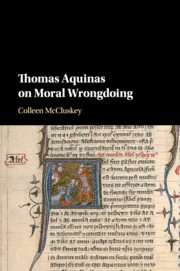Book contents
- Thomas Aquinas on Moral Wrongdoing
- Thomas Aquinas on Moral Wrongdoing
- Copyright page
- Dedication
- Contents
- Acknowledgments
- A Note on the Texts
- Introduction
- 1 Metaphysical Foundations
- 2 Evil as Privation
- 3 Aquinas’s Account of Moral Wrongdoing
- 4 Aquinas’s Account of Moral Wrongdoing
- 5 Aquinas’s Account of Moral Wrongdoing
- 6 The Vices in Aquinas’s Moral Psychology
- Bibliography
- Index
- References
Bibliography
Published online by Cambridge University Press: 12 January 2017
- Thomas Aquinas on Moral Wrongdoing
- Thomas Aquinas on Moral Wrongdoing
- Copyright page
- Dedication
- Contents
- Acknowledgments
- A Note on the Texts
- Introduction
- 1 Metaphysical Foundations
- 2 Evil as Privation
- 3 Aquinas’s Account of Moral Wrongdoing
- 4 Aquinas’s Account of Moral Wrongdoing
- 5 Aquinas’s Account of Moral Wrongdoing
- 6 The Vices in Aquinas’s Moral Psychology
- Bibliography
- Index
- References
- Type
- Chapter
- Information
- Thomas Aquinas on Moral Wrongdoing , pp. 179 - 194Publisher: Cambridge University PressPrint publication year: 2016



